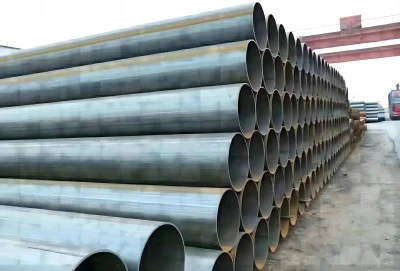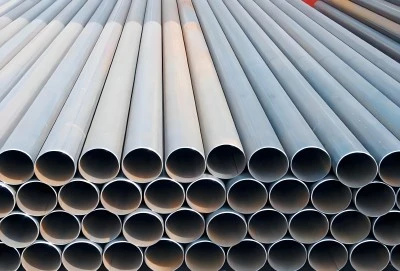In the world of steel pipe manufacturing, the API 5L standard plays a crucial role in ensuring the quality and reliability of rolled and welded steel pipes. This comprehensive guide will delve into the intricacies of API 5L standards, exploring how they apply to different grades of steel pipes and their various applications in industries such as oil and gas, construction, and infrastructure development.
|
|
|
How do API 5L PSL1 and PSL2 apply to rolled and welded steel pipe grades?
API 5L, developed by the American Petroleum Institute, is a specification that sets the standards for line pipe used in oil and gas transportation. The standard is divided into two Product Specification Levels (PSL): PSL1 and PSL2. These levels apply to both rolled and welded steel pipes, each with its own set of requirements and specifications.
PSL1 is the basic level of the API 5L standard. It covers a wide range of pipe grades, from A25 to X70, and is suitable for less demanding applications. Rolled and welded steel pipes manufactured to PSL1 standards undergo basic testing and inspection procedures to ensure they meet the minimum requirements for strength, toughness, and chemical composition.
On the other hand, PSL2 is a more stringent specification level. It applies to higher-grade pipes, typically from X42 to X80, and is designed for more critical applications where additional safety and reliability are paramount. Rolled and welded steel pipes meeting PSL2 standards undergo more rigorous testing and have tighter controls on chemical composition, mechanical properties, and manufacturing processes.
For both PSL1 and PSL2, the API 5L standard specifies requirements for seamless and welded steel pipes. This includes Electric Resistance Welded (ERW) pipes and Longitudinal Submerged Arc Welded (LSAW) pipes, which are common types of welded steel pipes used in various industries.
What mechanical and chemical properties must rolled and welded pipes meet under API 5L?
The API 5L standard sets forth specific mechanical and chemical properties that rolled and welded steel pipes must meet. These properties ensure that the pipes can withstand the pressures and environmental conditions they will face in service.
Mechanical properties specified by API 5L include:
- Yield strength: The stress at which a material begins to deform plastically.
- Tensile strength: The maximum stress that a material can withstand while being stretched before failing.
- Elongation: A measure of the material's ductility, indicating how much it can stretch before breaking.
- Hardness: The resistance of the material to indentation or scratching.
For welded steel pipes, additional properties such as weld seam strength and impact toughness are also specified to ensure the integrity of the welded joint.
Chemical properties are equally important in determining the quality and performance of rolled and welded steel pipes. API 5L specifies maximum allowable percentages for various elements in the steel composition, including:
- Carbon (C): Affects the strength and hardness of the steel.
- Manganese (Mn): Improves strength and hardenability.
- Phosphorus (P) and Sulfur (S): Impurities that are kept to a minimum to prevent brittleness.
- Niobium (Nb), Vanadium (V), and Titanium (Ti): Microalloying elements that enhance strength and toughness.
The specific limits for these elements vary depending on the grade of the steel pipe and whether it falls under PSL1 or PSL2 specifications. Generally, PSL2 has more stringent requirements for chemical composition, particularly for higher-grade pipes.
What are the applications of API 5L X42–X80 grades in welded steel pipes?
API 5L X42 to X80 grades represent a range of high-strength low-alloy (HSLA) steels commonly used in welded steel pipes for various applications. These grades are named based on their minimum yield strength in thousands of pounds per square inch (psi). For example, X42 has a minimum yield strength of 42,000 psi, while X80 has a minimum yield strength of 80,000 psi.
The applications of these grades in welded steel pipes include:
- Oil and Gas Pipelines: X42 to X80 grades are extensively used in onshore and offshore pipelines for transporting crude oil, natural gas, and refined petroleum products. The higher-grade pipes (X65 to X80) are particularly suitable for high-pressure applications and harsh environments.
- Water Transportation: Lower grades like X42 and X52 are often used in large-diameter water pipelines for municipal water supply systems and irrigation projects.
- Construction and Structural Applications: These grades find use in piling, bridge construction, and other structural applications where high strength-to-weight ratio is desirable.
- Petrochemical Plants: Welded steel pipes of various API 5L grades are used in refineries and petrochemical plants for process piping and storage tank construction.
- Offshore Platforms: Higher grades like X65 to X80 are used in risers and flowlines for offshore oil and gas production platforms, where they need to withstand high pressures and corrosive environments.
The choice of grade depends on factors such as operating pressure, temperature, environmental conditions, and specific project requirements. Higher grades generally offer greater strength and toughness, allowing for thinner pipe walls and reduced material costs in high-pressure applications.
It's worth noting that welded steel pipes, particularly those manufactured using advanced welding techniques like LSAW (Longitudinal Submerged Arc Welding), can achieve properties comparable to seamless pipes in many of these applications. This has led to an increased use of welded pipes in critical applications where seamless pipes were traditionally preferred.
The API 5L standard plays a vital role in ensuring the quality and reliability of rolled and welded steel pipes used in various industries. By specifying stringent requirements for mechanical and chemical properties, as well as manufacturing processes, API 5L helps maintain the integrity and safety of critical infrastructure worldwide.
As technology advances and demand for high-performance pipes grows, manufacturers continue to innovate in the production of rolled and welded steel pipes. The range of API 5L grades from X42 to X80 offers versatility in applications, from basic water transportation to high-pressure oil and gas pipelines.
For those seeking high-quality rolled and welded steel pipes that meet API 5L standards, Longma Group is a leading manufacturer in China,contact them at info@longma-group.com. With expertise in producing a wide range of steel pipes, including large-diameter, thick-walled, and high-grade options, Longma Group is committed to delivering excellent products and services. Their extensive inventory and manufacturing capabilities make them a reliable partner for projects requiring API 5L compliant steel pipes.














